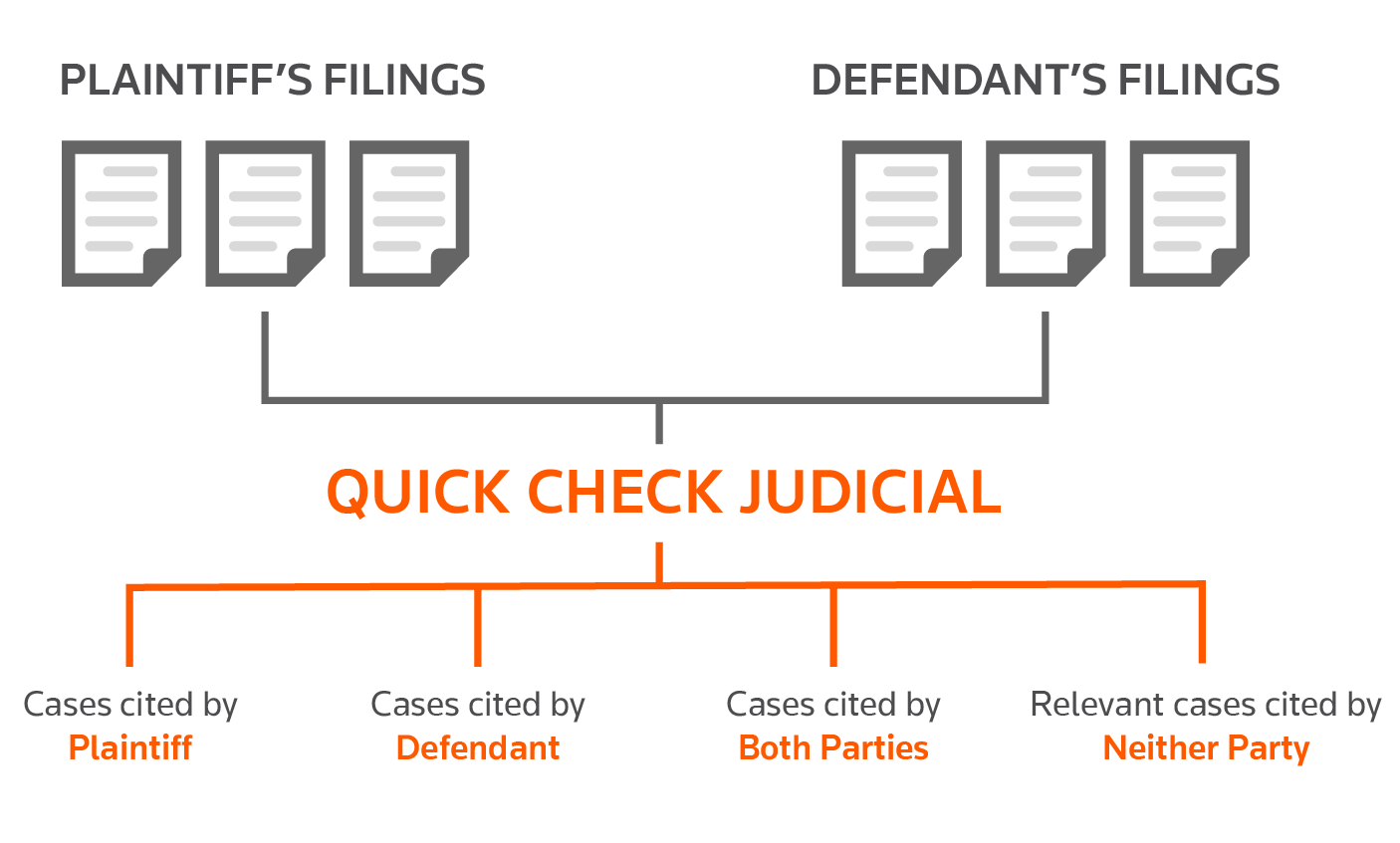2023 State of the Courts Report: How Quick Check Judicial Helps the U.S. Justice System Operate More Efficiently

The U.S. court system is plagued by delays, backlogs, and workforce shortages. As CJ Lechtenberg, senior director of product management, Westlaw, explains, “Case backlogs became more prevalent with the pandemic and the state of backlogs has not improved in the past three years.”
The 2023 State of the Courts Report found that courts should invest in digitization to modernize and run more efficiently. Legal Current talked with Lechtenberg about the report findings and how Thomson Reuters tools can help the courts operate more efficiently. Our conversation focused on Quick Check Judicial, an AI-based tool that enables users to upload multiple briefs or memos from a single matter to surface highly relevant authority that neither party included and provides fast, automated review of citations and quotations. Below is a recap of the conversation.
LC: In the report, 44% of judges and court professionals said that case backlogs had increased over the past 24 months. How can embracing technology solutions like Quick Check Judicial help courts reduce backlogs?
Lechtenberg: Quick Check Judicial helps court professionals save valuable time without sacrificing confidence that they understand the full picture of the matter at hand. Judges and law clerks can use it to
- Gain a better understanding of what relevant cases were not cited by either party – whether intentionally or as an oversight,
- Get a list of the authority the parties relied on to see where they overlap or differ,
- Quickly check the validity and accuracy of the citations and quotations across the uploaded documents, and
- Mitigate the risk of inaccuracies or omissions that might be discovered on appeal.
Legal Current: The report found that video conferencing and e-filing are the top two technologies courts use. How can expanding their use of technology to include workflow tools like Quick Check Judicial help them operate more efficiently?

CJ Lechtenberg
Lechtenberg: Reviewing and analyzing multiple filings from a matter is a time-consuming and laborious process. Quick Check Judicial provides users the ability to upload and compare up to six documents from a matter at once. With Quick Check Judicial, judges and law clerks can simply upload their documents and receive an automated report with insights into the citations relied upon by each party, citations found in both parties’ filings, and highly relevant authority that neither party included.
LC: How does Quick Judicial’s use of AI help judges make the most of their time?
Lechtenberg: We know time is at a premium for court professionals, especially when it comes to conducting legal research and reviewing case filings. That was true before the pandemic and even more so today. If judges and law clerks had all the time in the world, they would run every possible search, uncover and follow every Key Number link, review every KeyCite history and citing reference and look in every source possible. But the reality is that no one has that kind of time, so they research what they know in the ways they know. They do their best and then they move on because it’s just not humanly possible to do everything.
Likewise, reviewing quotations is a time-consuming task that is prone to error, especially when court professionals are reviewing an average of 25 quotes per brief and then multiply that by several filings. What that means is that court professionals are often left with the nagging feeling of wondering if they found everything they could. What if they didn’t? Will this case be appealed? Will their decision be reversed? This is where AI becomes incredibly valuable. A human may not be able to look in every resource or chase all the citations, but a machine absolutely can. Quick Check Judicial can look in places and research in ways a human cannot, and it can do it in a fraction of the time.
LC: What feedback have you heard from judges and court professionals already using Quick Check Judicial?
Lechtenberg: Many judges and court professionals have proclaimed that Quick Check Judicial has been a game-changer for them. Judges absolutely see the benefits both for themselves and attorneys alike. Retired Minnesota Supreme Court Justice Eric Magnuson said, “Most judges don’t have the time to explore every little detail of what’s put in front of them. They want big-picture, and they want core stuff, which Quick Check Judicial can help with.” And retired Delaware Supreme Court Justice Randy Holland said, “Attorneys only argue before the court so often, and even though the judge might hear the same cases a lot, attorneys aren’t arguing them every day. No matter how good a lawyer is, it’s hard to stay up to date with everything, but with Quick Check Judicial, you can go into court with confidence.”
LC: Quick Check Judicial frees up users’ time, which can help them be more productive in the practice of law. How can using workflow tools also impact access to justice?
Lechtenberg: Workflow and research tools put their users on a more level playing field and provide greater access to justice. Speaking from a law firm point of view, if a plaintiff is represented by a small law firm and a defendant is represented by a global law firm, there is no question that the global law firm has more resources at its disposal. There are more people to conduct research and more people with knowledge about various legal issues. By employing a tool like Quick Check or Quick Check Judicial, you don’t need 10 associates to conduct legal research. Quick Check is that extra set of eyes or that extra research assistant that can help the user find what they otherwise may have missed.